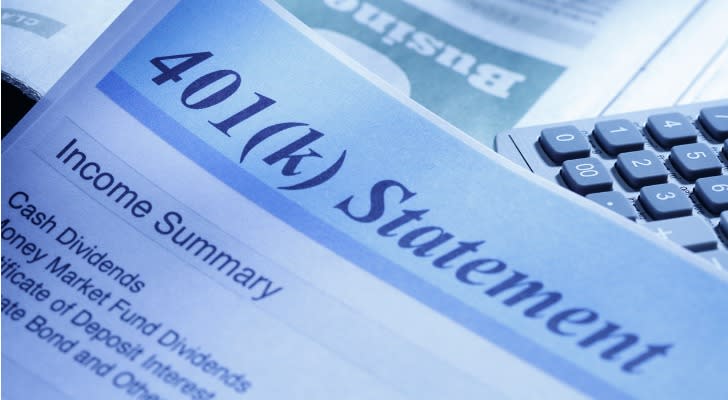You May Need to Rethink Where Your Retirement Income Will Come From

A growing number of workers report that their primary source of retirement income will come from their 401(k) workplace savings plan, according to a new retirement study from Schwab. In 2022, workers said 37% of their retirement money would come from 401(k) cash. That figure has now risen to 40% of workers.
Consider working with a financial advisor as you plan your withdrawals from a tax-advantaged plan or as you create a plan for such withdrawals.
"Placing such a high priority on 401(k)s is not surprising since it is their primary retirement resource, with workers counting on it to deliver 40% of their retirement income," said Marci Stewart of Schwab. "That's double what workers expect from the next closest source, which is Social Security at 20% of retirement income."
How Retirement Income Planning Is Changing

That 40% is comprised of one’s own 401(k) (32%) and from one’s partner’s 401(k) (8%). Last year, the same study had those figures at 30% from one’s own 401(k) and 7% from a partner’s 401(k). Even with 40% of retirement income coming from either their own or their spouse's 401(k) account, these workers will still need to rely on a wide array of other sources to cover the bulk of their living expenses in retirement.
According Schwab's 2023 401(k) Participant Study, sources of retirement income besides private 401(k)s are:
Social Security: 20%
Savings and investments: 15%
Pension/defined benefit plan: 11%
Part-time work: 4%
Annuities/insurance: 3%
Real estate income: 3%
Inheritance: 3%
Other: 1%
Social Security: Most working people can collect their full benefit amount at age 67, but delaying benefits increases the amount by 8% for each year up until age 70 1/2. Couples also can weigh strategies for collecting spousal benefits through Social Security.
Savings and investments: Besides workplace plans, investing in either an individual retirement account or a Roth IRA is an option for most workers. Additional money for an emergency fund or the first year or two of retirement expenses can be saved in a savings account, money market account of CDs, which offer some interest gains as well as being guaranteed by federal and state agencies.
Pensions: If you're lucky enough to enrolled in a pension plan, weigh the options for collecting those benefits. Most plans allow participants to start withdrawals early and also offer a reduced amount that can continue for a spouse if the pension recipient dies.
Part-time work: This can allow you to delay Social Security or withdraw less cash from retirement accounts to stretch your retirement income. Just be aware that if you're collecting Social Security before your full retirement age while continuing to work, your benefit amount will be temporarily reduced.
Annuities/insurance: You can use an annuity to provide consistent income during retirement, especially annuities that delay payments until later in retirement. Another option is the use of a life insurance retirement plan, which uses permanent life insurance to generate earnings.
Bottom Line

With retirement income often coming from so many sources, it's best to start planning early and review as many potential sources of retirement money as possible to augment withdrawals from 401(k) accounts and Social Security. Additional sources include pensions and part-time work.
Retirement Income Tips
Do you need help planning your retirement income? A financial advisor can help with that. Finding a financial advisor doesn't have to be hard. SmartAsset's free tool matches you with up to three vetted financial advisors who serve your area, and you can have a free introductory call with your advisor matches to decide which one you feel is right for you. If you're ready to find an advisor who can help you achieve your financial goals, get started now.
Accounting for taxes in your long-term income plan is incredibly important. However, every state has different laws governing how those taxes are handled, or whether they’re levied at all. Check out SmartAsset’s retirement tax overview to learn more.
Photo credit: ©iStock.com/SrdjanPav, ©iStock.com/DNY59, ©iStock.com/PeopleImages
The post You May Need to Rethink Where Your Retirement Income Will Come From appeared first on SmartReads by SmartAsset.
